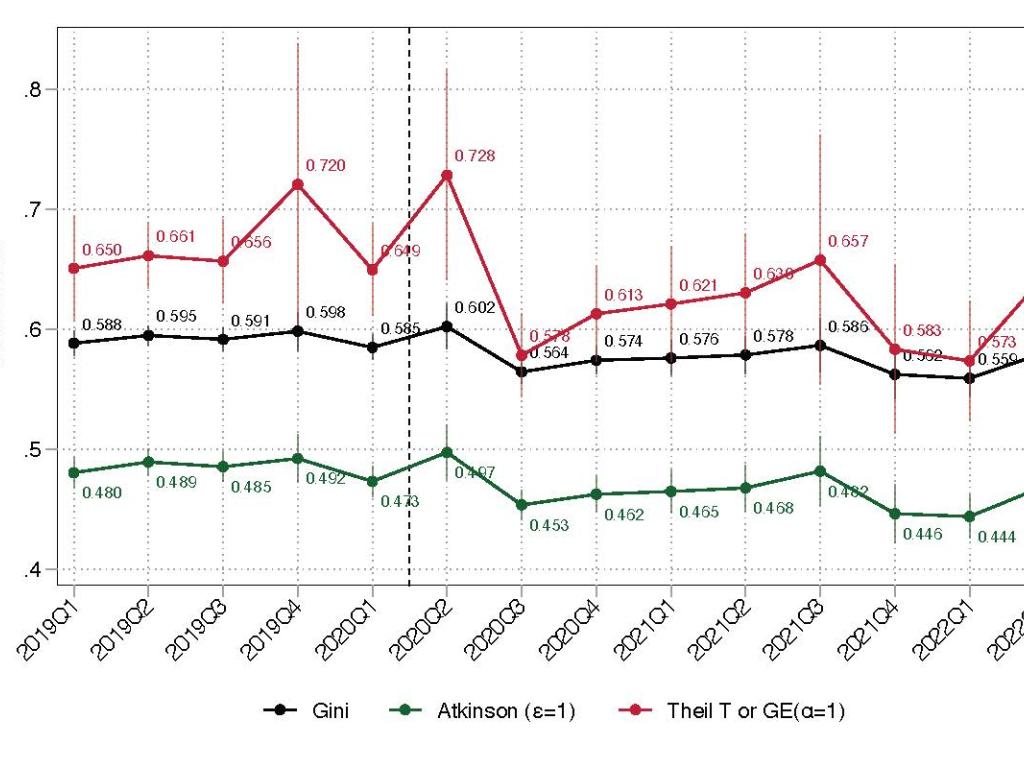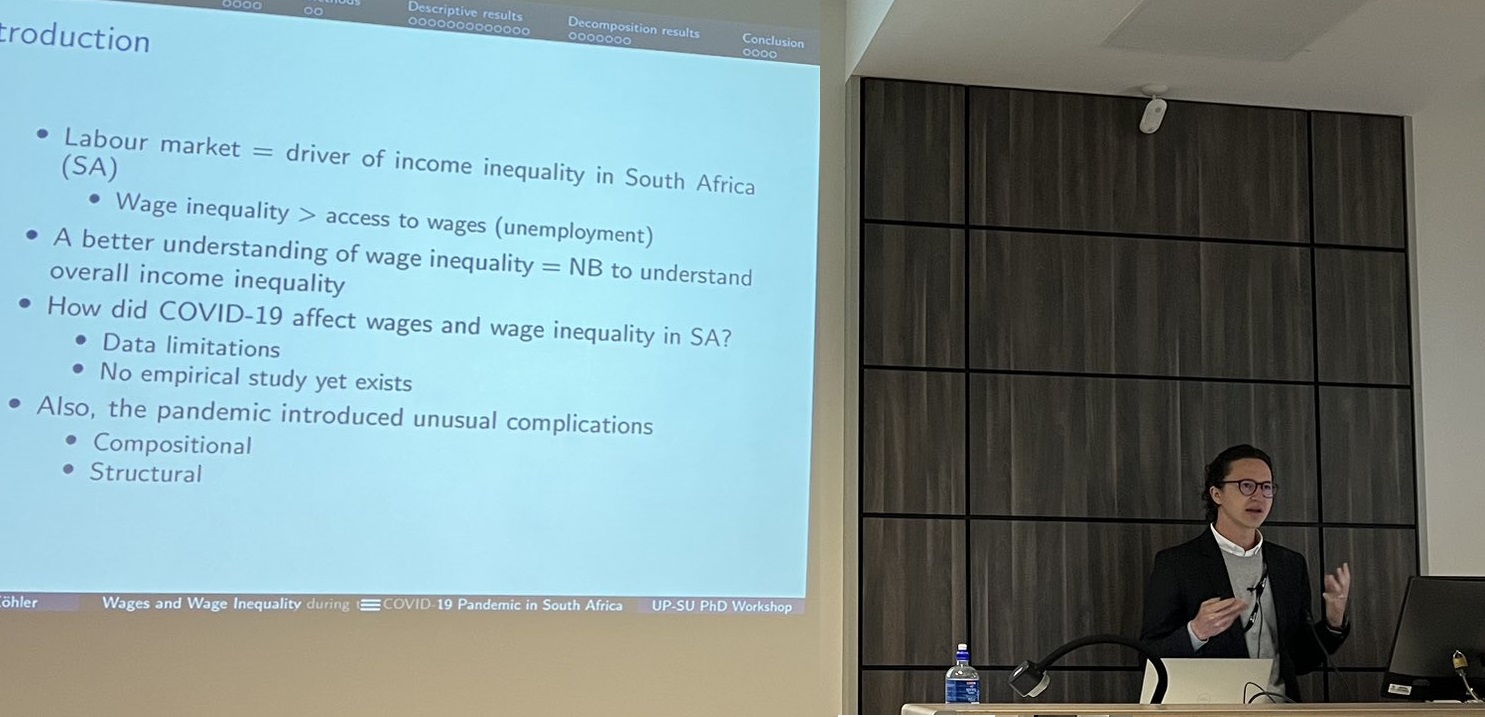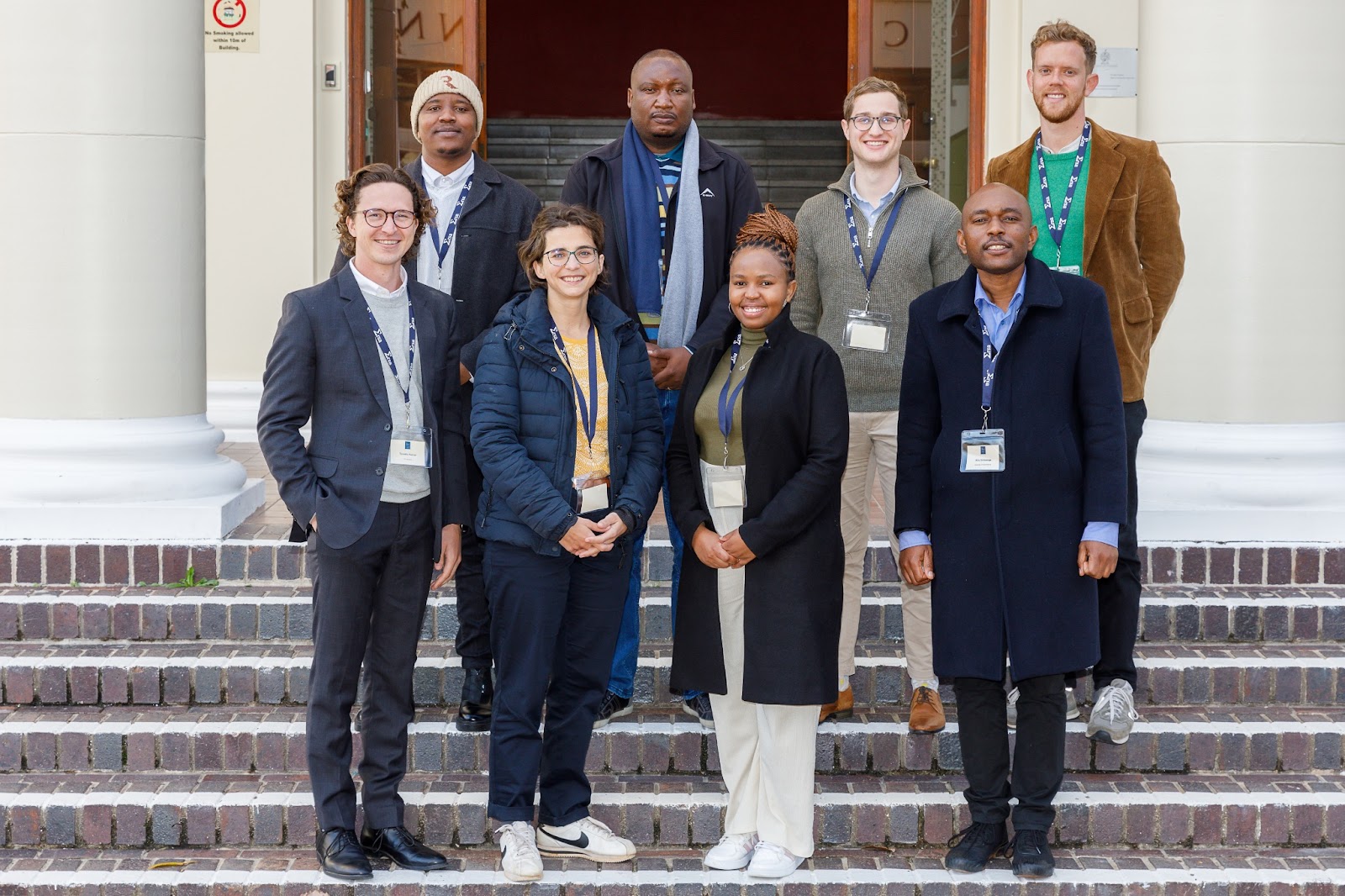New DPRU working paper: "Wages and Wage Inequality during the COVID-19 Pandemic in South Africa"

The latest DPRU Working Paper 202308, "Wages and Wage Inequality during the COVID-19 Pandemic in South Africa", is a revised version of one of Timothy Köhler’s PhD dissertation chapters. Tim, a DPRU Junior Research Fellow and PhD candidate, shares co-authorship with Prof. Haroon Bhorat, DPRU Director.
Because the COVID-19 pandemic affected the supply, demand, and nature of work, the implications for wage inequality are ex ante unclear. In South Africa, a country characterised by extreme income inequality driven by wage inequality, these effects are not yet fully understood due to the unavailability of adequate data. This paper makes use of representative and individual-level survey data not available in the public domain provided by Statistics South Africa, to analyse the evolution of the level and nature of wage inequality and its drivers in the country from 2019 to 2022.
Tim first shows that missing wage data in the survey is large and non-randomly distributed, justifying imputation. He shows that the imputations in the public data are of poor quality and result in an underestimation of wages across the distribution, but parametrically adjusting the raw data for outliers and missing data yields reliable estimates. They find that pre-pandemic wage inequality was extremely high and stable. At the pandemic’s onset, real wages mechanically rose primarily due to a composition effect induced by a regressive distribution of job loss. While 70% of this rise at the mean is explained by this effect, changes in the returns to characteristics played a relatively muted role. Not considering this former effect leads to misinterpretations of wage dynamics. Composition-controlled indices suggest the pandemic increased wage inequality up to 8% or 5 Gini points at its onset, but this was temporary. As the pandemic progressed and employment partially recovered, wage reductions toward pre-pandemic levels stemmed more from lasting changes in the returns to various characteristics than a more similar worker profile, indicative of a persistence of effects on the structure of the labour market.
Tim presented an earlier version of the work at the Economic Society of South Africa’s (ESSA) 2023 National PhD conference at the University of Fort Hare, at the Research on Socio-Economic Policy (RESEP) seminar in the Department of Economics at Stellenbosch University, at a School of Economics seminar at the University of Cape Town, and at the Third Annual Pretoria-Stellenbosch PhD Workshop in Economics at Stellenbosch University.


(3rd Annual Pretoria-Stellenbosch PhD Workshop in Economics: Tim Köhler @ bottom row, far left)
